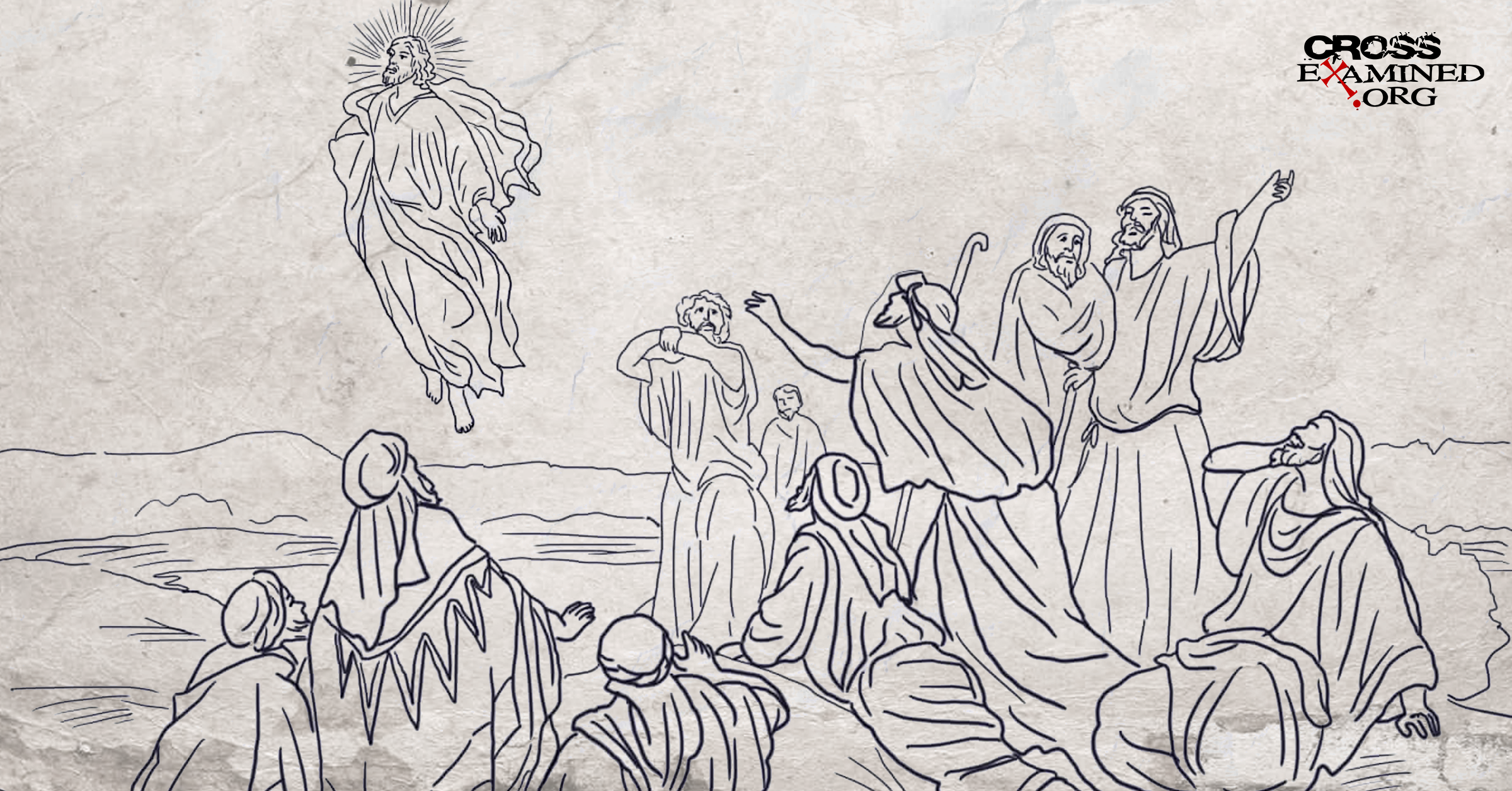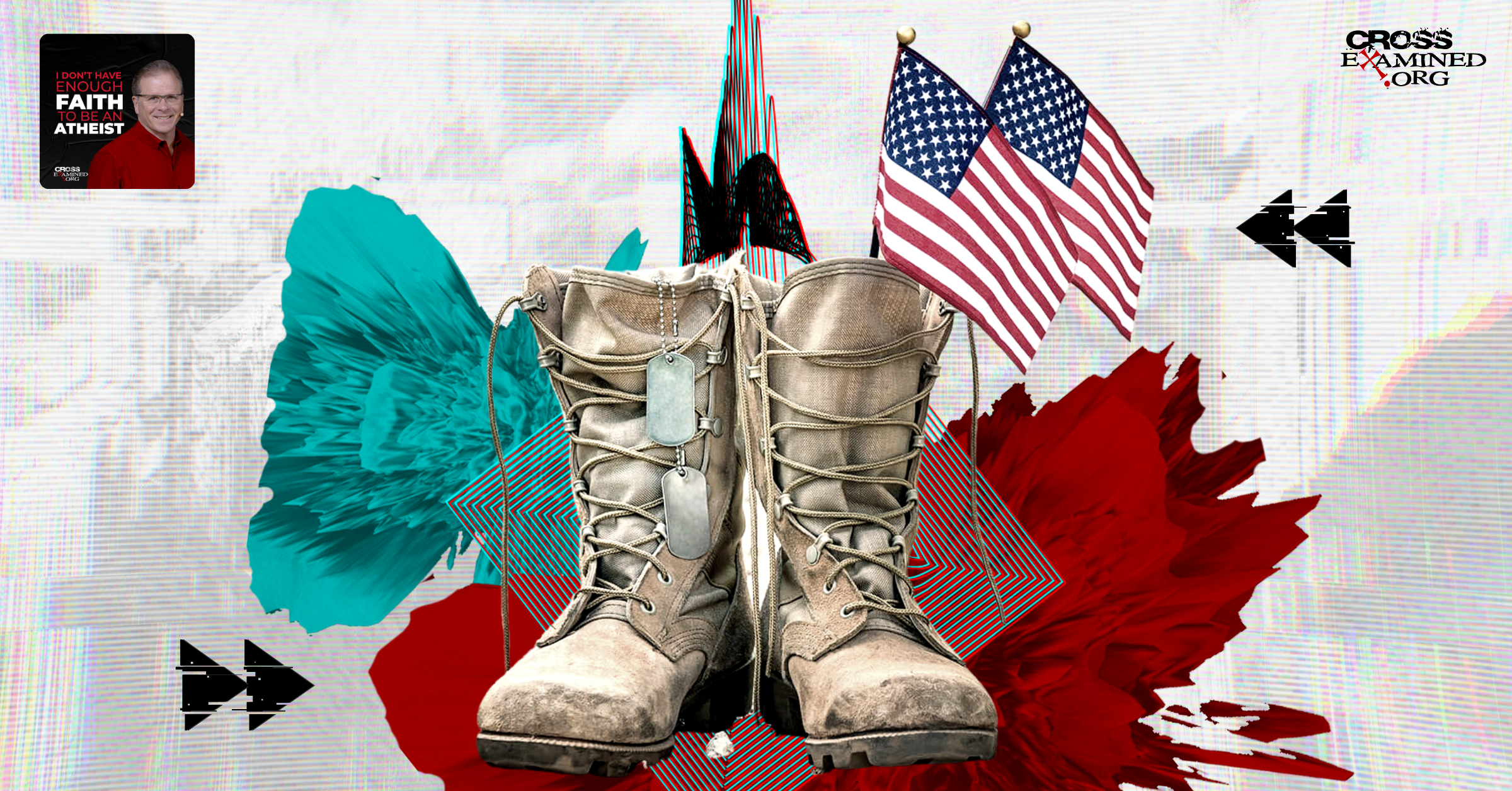The Need for Apologetics in the Local Church
Apologetics, when done with gentleness and respect (1 Peter 3:15), is beneficial in evangelism as we see the Holy Spirit use it time and time again in the Scriptures through Paul’s “reasoning” and “persuading” to draw souls to the Lord. However, in this article, I will show how apologetics in the local church has other benefits: equipping the saints and preventing apostasy. Of course our entire Christian walk should be dedicated toward evangelism; that is a given. But, not to sound too inwardly focused, I want to show that apologetics has benefits for the believers themselves and why the local church is the best source to implement them.
Apologetics is Useful in:
Making Disciples
The Great Commission in Matthew 28 commands believers to make disciples, not converts. This is an important distinction to make for apologetics as it has many benefits and goals. We know apologetics can be used in evangelism to make converts as Paul did throughout Acts, but it doesn’t stop there. The church needs to stir up one another to love and good works (Hebrews 10:24), equip the saints for the work of ministry (Ephesians 4:12), help them hold their faith firm to the end (Hebrews 3:14), and encourage them to love God with their minds (Matthew 22:37). Apologetics can be used in all of these, not confined to a classroom or specialty ministry, but all throughout the local church.
The local church is essential in equipping believers. But what are we to be equipped with? Ephesians 6 tells us to put on the WHOLE armor of God so we can stand against the devil’s schemes. Apologetics helps to strengthen our faith, “which you can extinguish all the flaming arrows of the evil one” and helps us “stand firm” with the “belt of truth.” Many times local churches focus on “the breastplate of righteousness” and the “helmet of salvation”, but we need the full armor of God.
The church stands on God’s Word, and they must compare everything to it. Apologetics is another aid in helping us know our Creator through studying his creation and loving Him with our minds. Apologetics does not replace Bible Study or preaching, it’s a helpful tool to be used simultaneously to produce richer study and preaching. Thus, it is not only useful in evangelism as Paul used it, but also through making stronger, wiser disciples with a faith built on solid ground.
Evangelism+
Apologetics isn’t just used in the moment of evangelism, but also leading up to it. This is a huge benefit of incorporating apologetics into the church. Fear cripples their congregants more than pastors want to admit. Of course, no matter how much we know, we may still feel nervous before sharing the gospel. However, the confidence in being able to defend our faith, through apologetics, eases those fears and can lead to more gospel conversations and encounters with unbelievers. I experienced this very thing as a 16 year old girl headed to Utah to share my faith with Mormons. I knew very little, and never wanted to be the one initiating or talking in the conversations. The more I studied, my confidence and ability to share and defend my faith increased. This made me WANT to initiate conversations and continue sharing the gospel even when I got home. Having a congregation who can more effectively and clearly share the gospel, while increasing the number of times they actually share it, should be an encouragement for pastors to embrace apologetics.
If the focus of apologetics in a local church setting is geared towards benefitting believers (not just for reaching unbelievers) the church will have stronger congregants, who can better spur one another on to love and good works. This is because apologetics equips the saints to live out the Christian worldview outside of the church’s walls…which includes evangelism! It is not a means of which believers fight with one another over trivial matters, but rather used to sharpen one another to better withstand the false ideologies and evils of the world.
Preventing Apostasy
“As for what was sown on rocky ground, this is the one who hears the word and immediately receives it with joy, yet he has no root in himself, but endures for a while, and when tribulation or persecution arises on account of the word, immediately he falls away” Matthew 13:20-21
Another important aspect of a local church is to help the saints persevere and hold firm their faith to the end. Apologetics is a helpful tool in preventing apostasy. I have experienced this benefit of apologetics personally. Had I not attended a youth group so committed to equipping us prior to college, I would have been eaten alive at my college. Ultimately, being a Christian at a secular college is HARD. Our sinful hearts sometimes don’t “feel” like living out the Christian faith or even “want” to. But I felt like Peter, when asked by Jesus, if he would like to go away as well. Peter replies: “Lord, to whom shall we go? You have the words of eternal life, and we have believed, and have come to know, that you are the Holy One of God.” (John 6:68-69) It did not matter how I felt each day, the gospel was true, and my faith was built on truth and not feelings.
A local church may feel that they are growing and that their congregants are evangelizing, so apologetics isn’t needed. I would caution against such a belief because as much as apologetics helps to equip us to share the Good News, it also protects us. Even if it appears that everyone has a strong faith and aren’t wrestling with doubt, we know that many have left and will leave the faith because they don’t feel like they have a good reason to believe it’s true.
If we are not giving believers good reasons for their faith, it will be much easier for the world to shake it when life gets hard. While discussing apologetics as a way to train, William Lane Craig says: “Unfortunately, our churches have largely dropped the ball in this area. It’s insufficient for youth groups and Sunday school classes to focus on entertainment and simpering devotional thoughts. We’ve got to train our kids for war.”[1] The world is at war with us. This is why we need the full armor of God.
Apologetics aids us in formulating sufficient answers to the world’s tough questions. At some point (if not already), we will be faced with tough questions. If our faith resembles a blind faith, or is built upon feelings, it can be more easily shaken. Therefore, the local church must cultivate strong faiths in their congregants so that they “may no longer be children, tossed to and fro by the waves and carried about by every wind of doctrine, by human cunning, by craftiness in deceitful schemes.” (Ephesians 4:14)
How Might Pastors Incorporate Apologetics?
Everyone has questions. Only those who know everything won’t have questions, and that of course, is none of us. Even pastors and church leaders have questions…and questions are a good thing! The local church should encourage their congregation to ask questions at church so they can come alongside them in finding quality answers. Pastors ought to share questions they’ve had, how they found answers (within the church body and not the world), and even invite his congregants to ask him questions to emphasize the benefits of asking and faithfully seeking truth. This type of culture within a church will lead to loving God with their minds, and not shrink in doubt. After all, we know JESUS IS THE TRUTH and therefore know we have true and genuine answers to give. No need to be scared of the questions when truth is on our side.
Apologetics can be implemented in all teaching ministries at a local church. Of course they can do specific series on apologetic topics or host apologetic events, but apologetics can be brought into all areas without disregarding expository preaching. Find time in all teaching moments at church to pull in some apologetics. Even if it isn’t blatant apologetics, it is about creating a culture where congregants can grow in their knowledge of the Lord, while getting their questions or doubts addressed within the church walls.
If Not for You, Do it for them
As I have discussed many benefits to apologetics in a local church and practical ways to implement it, I cannot stress enough that apologetics must be taught early. Apologetics isn’t just for adults and shouldn’t be confined to the main pulpit. It shouldn’t even be confined to college or high school students. Apologetics begins when children’s questions begin. As a mother to four young children, I can attest to how early that begins!
We should not answer any of our children’s questions with “because the Bible says so” for the same reason we rejected our own parents’ “reason” of “because I said so”. These types of explanations didn’t satisfy us then, and they certainly won’t satisfy our children, ESPECIALLY if the question is pertaining to big issues of life and not just why they have to make their bed. John Stonestreet and Brett Kunkle write:
“Challenges that undermine the authority of God’s Word cannot go unanswered. And we cannot merely assert that the Bible is the authoritative book from God and hope kids will simply take our word on the matter. Young people must understand the nature of biblical authority. They must have good reasons to trust the Bible as God’s Word.”[2]
We have better answers than “because the Bible says so”, so let’s give them!
Another important reason to start young is because we need to begin before we feel an urgent need to. As J. Warner Wallace writes, “According to the statistics, young Christians decide to abandon the church long before they ever tell anyone and usually before they leave the home of their parents…That’s why it’s so important for us to start early- even before your kids are verbalizing their questions.”[3] Many times, parents get into apologetics when it is too late. Even if your children do ask you their questions, if we fail to give sufficient answers, they won’t stop asking questions, they’ll just stop asking YOU questions. We must steer them to the truth in a satisfying and complete way, or we will see them seek answers elsewhere.
Conclusion
Apologetics is needed in the local church, in all ministries, and for all ages. Even if a believer doesn’t personally believe they need apologetics or good reasons for their own faith, why take the risk and not guard themselves against apostasy that the Bible warns against regularly? And even if they ultimately don’t need apologetics for themselves, someone they love does. And in order to be a wise “discipler”, we must have good answers to give or risk them turning to the world for answers.
We need apologetics in the local church to equip us to better know and love God with our minds, train and encourage us to evangelize, prepare us to better disciple young believers, and protect us (and others) from the deceitful ideologies of this world and falling into apostasy. The church is responsible for equipping their congregation, and thus, should implement apologetics regularly.
Now let us fasten on the belt of truth and get to work!
[1] William Lane Craig. “Christian Apologetics: Who Needs It?: Reasonable Faith.” Who Needs It? Reasonable Faith, www.reasonablefaith.org/writings/popular-writings/apologetics/christian-apologetics-who-needs-it/.
[2] John Stonestreet and Brett Kunkle. A Practical Guide to Culture. David C. Cook, 2020. 309.
[3] Sean McDowell and J. Warner Wallace. So the Next Generation Will Know. David C Cook, 2019. 41.
c40000
Proverbs: Making Your Paths Straight Complete 9-part Series by Frank Turek DVD and Download
God’s Crime Scene for Kids by J. Warner Wallace and Susie Wallace (Book)
_____________________________________________________________________________________________________________________________________________________
Maggie is a stay-at-home wife and mother to her husband Curtis and children Troy (in heaven),Ty, Jay, Palin and Boyd. She received her BA in Religious Studies from Chapman University and her Masters in Christian Apologetics and Evangelism from Trinity College of the Bible and Theological Seminary. She currently serves as the Biblical Immersive Experience Coordinator at Maven where she has the joy of planning trips for Christian youth to share their faith with Mormons in Utah. Along with her love for Christian youth and Mormon ministry, she is a pro-life and adoption advocate. She has a deep love for babies and has been nicknamed “the baby whisperer”. You’ll likely find her snuggling on the couch with one of her kiddos while eating bacon and drinking a glass of chocolate milk (Nesquik of course).
Original blog: https://bit.ly/3kwocJS











